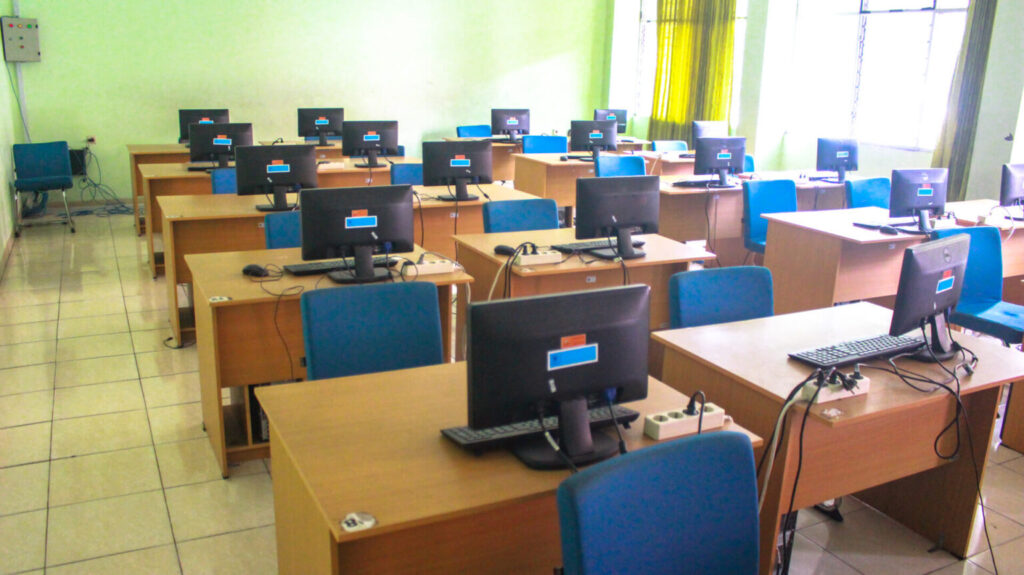Facilities and Infrastructure
The facilities and infrastructure owned by the Electronics Engineering Study Program include buildings, lecture halls, studios, laboratories and workshops.
DIGITAL LABORATORY
The Microcontroller Laboratory in the Electronics Study Program aims to provide understanding and practical skills in the use, programming, and development of microcontroller-based systems. Students will learn to design and test electronic systems using microcontrollers, understand the working principles of microcontrollers, and master relevant programming languages. The goal is to prepare students for industrial and electronic applications that rely on microcontroller technology.
ANALOGUE LABORATORY
The Analog Laboratory in the Electronics Study Program aims to provide understanding and practical skills in analog electronics. The aim is to train students in designing, building, and testing analog electronic circuits and understanding the characteristics of analog signals. This laboratory also prepares students for the challenges of the electronics industry that uses analog technology.
MICROCONTROLLER LABORATORY
The Microcontroller Laboratory in the Electronics Study Program aims to train students in the use, programming, and development of microcontroller-based systems. Students learn to design and test electronic systems, understand the working principles of microcontrollers, and master related programming languages. The aim is to prepare students for industrial and electronic applications that use microcontroller technology.
INSTRUMENTATION LABORATORY
The Instrumentation Laboratory in the Electronics Study Program aims to train students in the use, measurement, and analysis of electronic instrumentation tools. The goal is to develop understanding and practical skills in designing, building and testing instruments and preparing students for the electronic instrumentation industry.
CONTROL SYSTEM LABORATORY
The Control Systems Laboratory in the Electronics Study Program aims to train students in designing, building, and testing electronic control systems. The goal is to develop understanding and practical skills in the application of control techniques, such as PID control and adaptive control. This laboratory prepares students to face industry demands in developing efficient and accurate electronic control systems.
ROBOTIC LABORATORY
The Robotics Laboratory in the Electronics Study Program aims to train students in designing, building and testing robotics systems. The goal is to develop understanding and practical skills in robotics, including basic principles, kinematics, motion control and robot programming.
ELECTRONICS WORKSHOP
The Electronics Workshop in the Electronics Study Program aims to provide practical experience in assembling, repairing, and testing electronic components and circuits. The aim is to train practical skills such as soldering, troubleshooting, and maintenance of electronic equipment.
MECHANICAL WORKSHOP
The Mechanical Workshop in the Electronics Study Program aims to train students in understanding and practical skills in the field of mechanics that are relevant to electronics applications. Its goal is to design, build, and repair mechanical components in electronic systems.

COMPUTER LAB
The Computer Laboratory in the Electronics Study Program aims to train students in the use of computers in the electronics field. The goal is to develop skills in programming, data analysis, simulation and design of electronic circuits using computer software.
